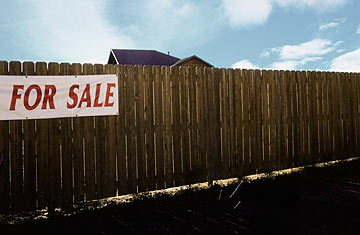
(2 of 2)
Certain markets are faring better than others. Boston, parts of southern California, Houston and Dallas have seen sales and prices start to pick up. Even though California was the epicenter of the boom and bust, prices have bottomed in many of its markets, especially for entry-level buyers. "Whenever a foreclosed property comes onto the market [in California], usually there are 10 people ready to jump on it," says Yun. The weakest markets include Florida, Las Vegas and Phoenix, which saw the largest pricing gains in the bubble years, as well as Michigan and Ohio, where job losses have been big.
Stephen Kim, a senior real estate analyst at Alpine Woods Capital Investors LLC, which holds shares in homebuilding companies, says he thinks there will be "only modest" declines in the months following the programs' expiration unless the overall economy, or employment, also tanks.
Other factors — rising unemployment, rate resets on certain adjustable-rate mortgages, shadow inventory and escalating foreclosures — could derail the housing recovery, especially in the absence of the federal programs.
Then there's the elephant in the room: jobs. The U.S.'s unemployment rate, which stood at 9.7% in February, is expected to hit at least 10.3% before peaking later this year, according to Gus Faucher, director of macroeconomics at Moody's Economy.com. Says Brinkmann: "The fundamental driver in demand for housing still comes down to jobs."
At the same time, the industry is bracing for an avalanche of specialized adjustable-rate mortgages, known as option ARMs, as well as certain alt-A mortgages, to reset over the next 12 to 15 months. At least $60 billion in option ARMs will reset in 2010, and an additional $64 billion will do so in 2011, according to First American CoreLogic. Experts say this will likely trigger another round of mortgage defaults and foreclosures in the second half of 2010 and cause home prices to fall another 5% to 10% this year before the market bounces back.
It might take even longer for true strength to be evident in the housing market. "Recent estimates suggest that it would take about 33 months to clear all troubled mortgages at the current pace of liquidations," wrote Merrill Lynch analyst Michael Hanson in a recent note. Alex Barron, founder and senior research analyst at Housing Research Center LLC, has similar worries: "We need to be concerned about the homes that are significantly underwater but haven't yet defaulted," he says. "It may take another two, three or four years before we're well on our way towards a real recovery."
There are already signs of how fragile the rebound truly is. The latest month-over-month data show sales have slowed in recent months despite low mortgage rates and the home-buyer tax-credit program. New and existing home sales fell 2.2% and 0.6% respectively from January to February, and unsold inventory rose 9.5% during the same period. Some of February's sluggishness could be explained by cold, snowy weather that blasted the Eastern seaboard, but the precise impact of this is hard to know.
While many analysts believe the market has stabilized, they emphasize that housing has a deep hole to climb out of. Since the housing peak in July 2006, home prices have plunged 30% on average, with certain bubble markets such as Phoenix, Las Vegas and parts of Florida seeing prices plummet more than 60%. Losses from the housing meltdown totaled $7 trillion at the end of 2009, according to Yun.
"The housing market overall is starting to stabilize and move a bit sideways but certainly is not on the upswing," says Heather Fernandez, vice president of Trulia, a real estate research firm. "Our best guess is that the market continues to move sideways in 2010 and we start to see recovery in sales and prices in more markets across the U.S. in 2011."
